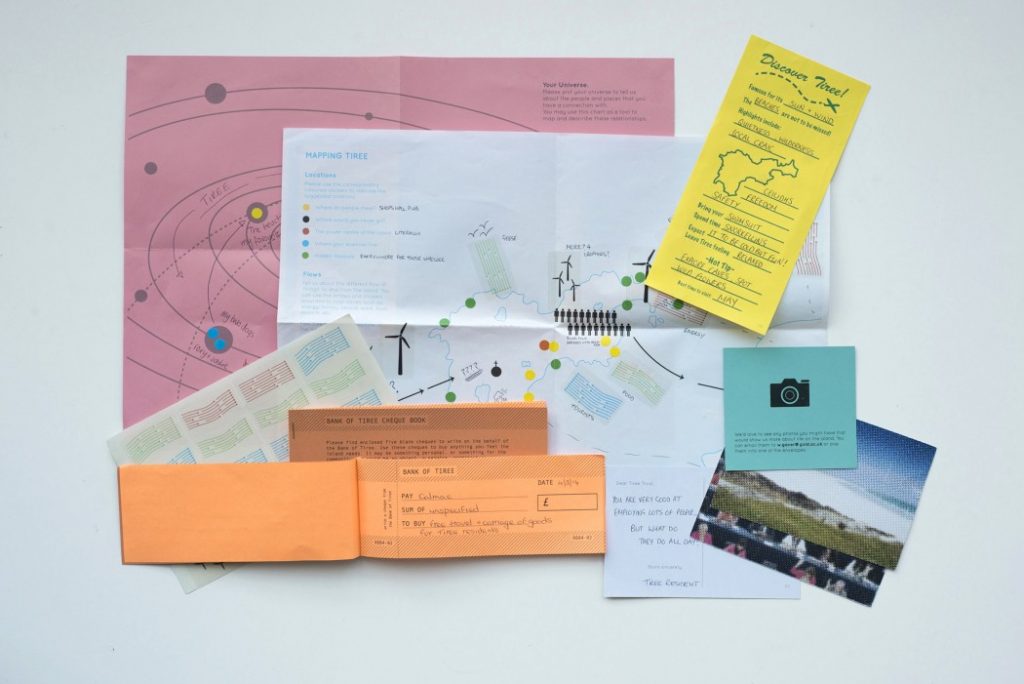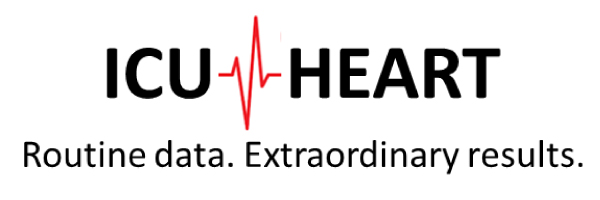By Catherine Montgomery, Santini Basra, Corrienne McCulloch, Annemarie Docherty
If you’ve ever worked in or been a participant in health research, you will know that the process is one which strives for certainty in spaces where knowledge is uncertain, seeks signal over noise, and aims to follow a linear trajectory from research question to publication. In this most rational of endeavours, all parts of the process are designed with clarity, efficiency and risk-avoidance in mind: protocols dictate how the research will be conducted; ethics applications must anticipate all eventualities so as to minimise risk to participants and investigators; research tools and analysis plans must be pre-specified; the boundaries of the inquiry are set.
There are good reasons for designing and executing research in this way, most of which are to do with protecting participants and ensuring the scientific integrity of the knowledge produced. But what kind of knowledge do these processes produce when the world under study is messy, complex, and riven with ambiguity? Reflecting on social science methods nearly two decades ago, Science & Technology Studies (STS) scholar John Law wrote:
“If much of the world is vague, diffuse or unspecific, slippery, emotional, ephemeral, elusive or indistinct, changes like a kaleidoscope, or doesn’t really have much of a pattern at all, then where does this leave social science? How might we catch some of the realities we are currently missing? Can we know them well? Should we know them? Is ‘knowing’ the metaphor that we need? And if it isn’t, then how might we relate to them?”
(Law 2004: 2)
The same holds true for methods beyond the social sciences. In health research, where the randomised controlled trial holds the trophy for most highly prized knowledge, mess, instability, the ephemeral and the vague are rendered into data which is clean, complete, definite and stable. How, then, to engage the public with the ensuing knowledge, which is removed by several degrees from lived experience?
ICU-HEART is a research project funded by the Wellcome Trust, whose vision is to use routine healthcare data to improve outcomes for critically ill patients with co-existing cardiovascular disease. It aims to do this by using large national datasets to characterise patients at risk of heart attack and to design a clinical trial which will be able to show evidence of intervention effect. In ICU, around 75% of patients are admitted as an emergency, over half of these admissions take place outside normal working hours, and nearly one in five patients die in hospital. In these scenarios, most patients lack capacity to consent to treatment decisions (including participation in research) and their closest relative must give consent for participation in research on their behalf. This is a difficult task which may have significant consequences during a moment that is fraught with emotional turmoil.
Development of technology and secure mechanisms to analyse data mean that the boundaries of research and clinical care are shifting. Healthcare data that is routinely collected as part of an ICU patient’s care can now be integrated with research and used to create data sources for clinical trials. The historic emphasis on experimental research (randomised clinical trials) no longer reflects the focus of research undertaken in Critical Care, where researchers can understand much about admitted patients and their outcomes from data collected as part of their clinical care.
The potential for technological advance in relation to care and knowledge begs the question of what critical care should be like in the future: for patients and their relatives, but also clinicians, researchers and those responsible for ensuring research is ethical. Should all patients admitted to ICU contribute to research? What kind of consent, if any, should patients and their relatives give for their data to be included in studies? How does care change if a patient is involved in research?
It would not be difficult to design a questionnaire to ask people their thoughts about these issues. We could define the universe of possible responses, give people multiple choice boxes to tick, and quickly get a set of answers. Alternatively, we could conduct a smaller number of in-depth interviews exploring participants’ experiences of taking part in research in ICU and asking what they think a good model of care and consent would look like in the future. In the first scenario, the answers we get are delimited by our own conceptual universe as researchers. There is little room for things we haven’t thought of, for nuance, for ambiguity, for depth of human experience, or indeed for empathic understanding. In the second scenario, there is space for all of these things to emerge, but only within the contrived setting of the research interview. In both cases, we institute an imbalance of power, between ‘us’ the active researchers or knowers and ‘them’, the passive researched, the known.
This is not what engaged research looks like, and if we want a future ICU in which all those involved feel they have a stake, we must engage a breadth of stakeholders in articulating its design. Academics at the Centre for Biomedicine, Self and Society have been actively working on the question of engaged research for some years. In a recent paper, they stress the importance of researchers thinking through how their position in society affects the kind of knowledge they produce and the kinds of power relations it entails (Erikainen et al 2022). Implicit is an acknowledgement that all knowledge is situated, plural and partial — in other words, scientific knowledge is not a ‘view from nowhere’ but is implicated in a particular way of seeing the world from a given standpoint. There are many different types of knowledge, and each of these can provide a partial, but never complete representation of the world.
Given all of this, how could we engage different stakeholders around the question of what ICU as a place of care and research should look like in the future?

Cultural probes are a method developed in the field of design research to elicit inspiration through provocation. Consisting of visual and tangible kits that include various kinds of descriptive and exploratory tasks, such as photographing, diary-writing and collage-making, probes aim to sensitise participants to observe, reflect upon and report their experiences — while also sharing insight into their deeply held values, beliefs and ways of seeing. They offer an opportunity to disrupt the typical researcher/researched roles — probes are typically sent to participants who can complete them in their own time, in their own space, and in their own way, as activities usually are intended to be open to interpretation. “Traditional methods seem to set up a sort of game, with implicit rules limiting the relationship between researcher and researched to one addressing controlled content areas,” wrote Gaver, one of the inventors of cultural probes (Gaver 2020: 22). To counter this, probes were designed to subvert the traditional relationship between researcher and researched, allowing a conversation through which each could reveal aspects of themselves to the other. Narrating The Presence Project, in which cultural probes were first developed, Gaver describes embracing ambiguity and valuing subjectivity, leaving space for exploration, and encouraging imagination and dialogue about possible futures. This, he writes, “allowed us to work both playfully and purposefully breaking the boundaries of prevailing scientific approaches to address new values and emotions” (Gaver 2020: 11).
To us, cultural probes represent a tool for catalysing conversations between patients and relatives, clinicians, researchers, and research governance staff about the future of critical care. Existing dynamics between these different groups are characterised by entrenched power relations and protocolised ways of acting, which are not conducive to breaking the mould and imagining alternative futures. In ‘Exploring Futures for Critical Care Research’, we aim to challenge these dynamics by encouraging playfulness, embracing different kinds of knowledge, and making space for imagination as critical care moves into the data-driven era.
About ‘Exploring Futures for Critical Care Research’
‘Exploring Futures for Critical Care Research’ is funded by a Scottish Public Engagement Network (ScotPEN) Wellcome Engagement Award. The project is a collaboration between clinicians, social scientists and designers, working with ICU survivors and research governance staff to co-design cultural probes for public engagement. In addition to catalysing dialogue, the project aims to produce a set of future principles for person-centred approaches to data use and consent in ICU, as well as a public-facing installation about the future of ICU research.
About the authors
Catherine Montgomery is a Sociologist of Science and Medicine at the University of Edinburgh.
Santini Basra is the director of Andthen, a team of design researchers who specialise in conducting research about people’s perspectives on the future.
Corrienne McCulloch is a Research Nurse Manager and NRS Clinician in NHS Lothian.
Annemarie Docherty is an academic Critical Care Consultant in Edinburgh. Her primary research interests lie in the integration and analysis of prospective and routinely collected healthcare data to improve outcomes for critically unwell patients.
References
Erikainen S, Stewart E, Filipe AM et al. Towards a feminist philosophy of engagements in health-related research [version 2; peer review: 2 approved] Wellcome Open Research 2022, 6:58 https://doi.org/10.12688/wellcomeopenres.16535.2
Gaver, W. (2020) The Presence Project, Second Edition. London: Goldsmiths Press
Law, J. (2004) After Method: Mess in Social Science Research. London: Routledge

No responses yet